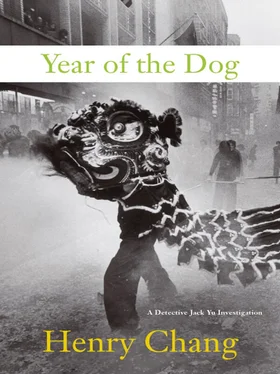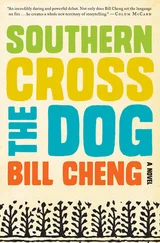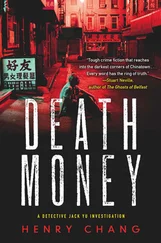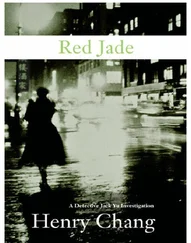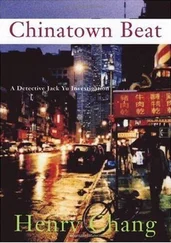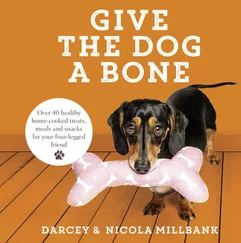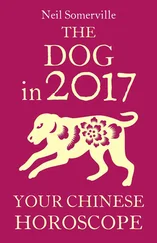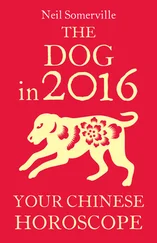Henry Chang - Year of the Dog
Здесь есть возможность читать онлайн «Henry Chang - Year of the Dog» весь текст электронной книги совершенно бесплатно (целиком полную версию без сокращений). В некоторых случаях можно слушать аудио, скачать через торрент в формате fb2 и присутствует краткое содержание. Жанр: Полицейский детектив, на английском языке. Описание произведения, (предисловие) а так же отзывы посетителей доступны на портале библиотеки ЛибКат.
- Название:Year of the Dog
- Автор:
- Жанр:
- Год:неизвестен
- ISBN:нет данных
- Рейтинг книги:3 / 5. Голосов: 1
-
Избранное:Добавить в избранное
- Отзывы:
-
Ваша оценка:
- 60
- 1
- 2
- 3
- 4
- 5
Year of the Dog: краткое содержание, описание и аннотация
Предлагаем к чтению аннотацию, описание, краткое содержание или предисловие (зависит от того, что написал сам автор книги «Year of the Dog»). Если вы не нашли необходимую информацию о книге — напишите в комментариях, мы постараемся отыскать её.
Year of the Dog — читать онлайн бесплатно полную книгу (весь текст) целиком
Ниже представлен текст книги, разбитый по страницам. Система сохранения места последней прочитанной страницы, позволяет с удобством читать онлайн бесплатно книгу «Year of the Dog», без необходимости каждый раз заново искать на чём Вы остановились. Поставьте закладку, и сможете в любой момент перейти на страницу, на которой закончили чтение.
Интервал:
Закладка:
He pulled out a gray-metal lockbox from under the dresser, dialed the numbers until the combination was right, and opened it. There were the stacks of prepaid telephone calling cards, a few of which he used with his cell phones to take bets, a wireless transmission that couldn’t be traced. Most of the cards were for sale, on consignment from Big Chuck Chan, who was the leading Chinatown distributor of international calling cards. All the gamblers knew Sai Go sold the cards and bought from him because of the dollar discount he offered. Big Chuck was one of Sai Go’s regular bettors and the stack of phone cards served as collateral toward his credit line.
Underneath the stacks was a gun in a holster. He slipped the weapon out of the quick-draw belly-holster and caressed it. The Trident Vigilante was Italian-made, had a matte-nickel finish with black hard-rubber grips, and a six-shot cylinder that took the.32 caliber Smith amp; Wesson cartridge. The snub-nosed revolver was ultralight, only sixteen ounces, and the thirty-two cartridge produced less kick than the thirty-eight. It was a very practical belly gun, good for close combat but bad for distance accuracy. He had sawed and filed down the hammer so it wouldn’t snag on the draw.
Sai Go didn’t like automatic pistols because he worried they would jam up, and if he kept it on his belly with the safety off, he was afraid he would blow off his balls if he had to quick-draw and caught the trigger wrong. With the revolver, no such problems. Draw and shoot. No cocking action. Simple and quick. He’d seen enough gambler fights to know whoever got in the first hit was usually the winner. The first two shots, the muzzle explosions shocked the eardrums, causing a momentarily freeze. The man who didn’t freeze up was going to walk away. The other man, dead.
Sai Go put his money on the revolver.
At the bottom of the box were two small packs of money, and an envelope that contained a booklet and a certificate for the fifty-thousand-dollar life insurance policy he’d bought from Nationwide. He had kept up the modest payments, all these twenty years since his wife left, thinking that if he ever remarried, he’d have something more to offer a woman than an aging divorced man who couldn’t even claim a legitimate occupation.
The insurance was like a bonus prize, like a Ginsu knife.
He could remove his ex-wife’s name as beneficiary and could designate a new beneficiary at any time. He didn’t have children, had no one else in mind. Ha! The irony of it all, with him dying now, and no one else to benefit from it. The policy was paid up until next summer, a season he wasn’t expecting to see.
He tucked the envelope back into the side of the box, and removed the packs of money, crisp twenties and fifties, a couple of thousand, emergency cash, run money. Well, it was an emergency now, he knew, and he with nowhere to run.
He imagined a village in the south of China, near Toishan, but far enough away from Guangjo city to still be considered farm country. The village of generations of his family, scattered now, the remaining few relatives there no longer on speaking terms with him, especially after the divorce. Sure, he thought, go home to the village where no one wants me, so they can watch me die?
He was calm, rested now after the long sleep. He had a vision of himself in Thailand somewhere, a sunny tropical vista with brown-skinned girls to ease his remaining days. Spend the nights drinking Singha beer and feasting on satays, chow kueh teow noodles, and tom yum soup.
When he thought better of it, he felt he could just as easily go to Fat Lily’s or Angelina’s for brown-skinned girls, and to Penang or Jaya Village for Thai beer, roti, and hainam chicken. For the sunny vista he could take a bus south on the interstate, or take the train with the glass skylight roof down to Florida somewhere for a few weeks. Somewhere sunny and not too far. A cruise to one of the islands? What would he do with a shipload of lo fan strangers? He could just as well be alone in Manhattan, if he only turned off his cell phones and stayed out of the OTB and Chinatown.
He was taking it all very well, he thought, with some resignation, of course, but what else could he do really? Get hysterical? Get depressed? Beg the gods for forgiveness and salvation? Be hopeful even when the doctors offered no hope? He wasn’t the suicidal type, and even though he feared the pain to come, he didn’t see himself wasting half the time he had left being sick from the radiation. He wasn’t going to roll up in bed and wait to die.
He’d made it to fifty-nine, Sai Go mused, what the hell. He’d led a decent life, generally speaking, and hadn’t committed any evil he couldn’t face up to.
There were no relatives to notify. He wasn’t leaving anything to anyone, and his plot in the old Chinese section of Peaceful Valley cemetery had been paid in full years ago. Now he needed to spend whatever he had left, and try to avoid a painful death, even though he’d quit the meds, and canceled the chemotherapy.
Three or four months?
If he were a family man, there would be many other considerations, but he was alone. So the question was did he really want to go on a vacation to die, or to hang around Chinatown until the end? He could stop taking bets and just enjoy the final days. Take a junket to Atlantic City or Connecticut and play some cards games with the Chinese high rollers. He’d get comped with a lot more bang for the buck, and it would be only a three-hour bus ride from Chinatown.
The thoughts went back and forth inside Sai Go’s head even as he slurped hot jook , and chewed the crisp fried crullers at Big Wang’s. He read his Chinese newspapers and couldn’t help but scan the racing sections.
At the U.S. Asia Bank, his Happy Valley payout had been wired, and now his account had grown to over thirty-eight thousand. Even minus the six thousand for the dailo , he still had over thirty thousand to spend during his last months. There was another two thousand on the street he had to collect, but he didn’t anticipate a problem. These bettors were his family: the waiters, cooks, kitchen help, the street vendors and deliverymen. Ten-dollar bettors and hundred-dollar players, he’d treated them all fairly, with a savvy blend of camaraderie and no-nonsense. He never let his credit get too far in front and had built a loyal following. None of which mattered anymore, Sai Go knew, the game was over.
He went east on Catharine Street toward Henry, those streets crowded even in the cold with sidewalk vendors of fruit, vegetables, and seafood stores stacked against meat and poultry markets and a string of bakeries. Trucks and vans idled at the curb, their exhaust pipes steaming, as they rushed their deliveries with one eye out for the chow pai ticket of the brownie traffic cops.
On Henry Street, the buildings were turn-of-the-century brick tenements, mostly Jewish back then, but now overwhelmingly Chinese. A section of the Manhattan Bridge rose up in the near distance.
The New Canton Hair Salon had a blue awning with a cartoon of a pair of scissors and a comb drawn across the front. It was a small storefront sandwiched between a noodle shop and a poultry market on a dilapidated block of Henry Street.
The salon was unlike the new and shiny hair, nail, and massage “emporiums” that dominated Pell and Doyers Streets. There was graffiti on the outside of the New Canton. Inside was a run-down room with six barber chairs and a small counter near the door. There were mirrors on the walls, and shelves full of shampoo, lotions, and towels. The helpers washed hair at two basin stations, side by side behind a plastic partition.
Читать дальшеИнтервал:
Закладка:
Похожие книги на «Year of the Dog»
Представляем Вашему вниманию похожие книги на «Year of the Dog» списком для выбора. Мы отобрали схожую по названию и смыслу литературу в надежде предоставить читателям больше вариантов отыскать новые, интересные, ещё непрочитанные произведения.
Обсуждение, отзывы о книге «Year of the Dog» и просто собственные мнения читателей. Оставьте ваши комментарии, напишите, что Вы думаете о произведении, его смысле или главных героях. Укажите что конкретно понравилось, а что нет, и почему Вы так считаете.
